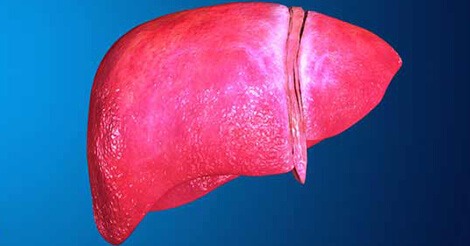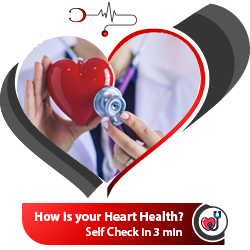Fatty Liver Disease Types, Risk Factors, & Prevention
People are more conscious about their appearance in today's world. Just having a good or healthy appearance does not help, you should be healthy from inside. Many research studies have recently revealed that if you are fat, overweight obese you are prone to a variety of serious health issues. Since we are talking about fat, do you know the fats we consume from foods are metabolized (broken down) in the liver? Now imagine what will happen in case this fat is accumulated in the liver itself? Let's get to know more about this condition called fatty liver.

What is Fatty Liver?
As a normal process, the fat content of the food we eat is metabolized (broken down) in the liver. When there is an abnormality in the process fat metabolization, this fat slowly keeps on accumulating in the liver excessively. The fat accumulation in the liver leads to the condition termed as fatty liver.
Types of Fatty Liver Disease
There are 3 types of fatty liver diseases
Non-Alcoholic Fatty Liver Disease (NAFLD)
This is the commonest and comparatively the least complicated one. It can be managed and treated easily with simple lifestyle changes.
Non-Alcoholic Steatorrhoeic Hepatitis (NASH)
Steatorrhea itself means an excess of fat in the stools. In this advanced type of Non-alcoholic fatty liver disease, there is swelling in and around the fatty liver cells. This can lead to the chronic liver disease called as liver cirrhosis (fibrous thickening of liver tissue)
Alcoholic Fatty Liver Disease: (ALD)
As the name suggests, this condition results from excessive consumption of alcohol.
Symptoms of Fatty Liver
Fatty liver is mostly an asymptomatic condition in its early stage. As the fat accumulation increases some of the following symptoms are seen
- Mild abdominal discomfort
At a later stage, the liver swells up and display symptoms like:
- Fatigue
- Bloating
- Jaundice
- Persistent fever
Risks Factors in Fatty Liver
The known and common risk factors of fatty liver disease are:
- Obesity
- High alcohol intake
- High-fat diet, especially in saturated fats
- Insulin resistance
- Diabetes
- Lack of exercise
The less common risk factors are:
- In pregnancy
- Consumption of some prescription drugs like corticosteroids or tetracyclines
- Underactive thyroid gland (hypothyroidism)
- High blood cholesterol
- Female reproductive system complications like ovarian disorders (Polycystic Ovarian Syndrome)
Complications of Fatty Liver Disease
Some serious complications of a fatty liver include:
- Liver Cirrhosis
- Gastro-intestinal bleeding
- Disease of the brain called as encephalopathy
- Non-alcoholic steatorrhoeic hepatitis (NASH) could often lead to the fatal liver cancer
Treatment and Management of Fatty Liver
Fatty liver can be treated and managed by making some adjustments to our lifestyle and controlling the underlying causes. Some ways by which fatty liver can be controlled are:
- Weight loss and exercise
- Proper management of diabetes
- Monitoring of medications for other health conditions like high blood cholesterol and sugar levels
- Limiting the usage of drugs that could damage the liver
Dietary modifications
Keeping a check on what you eat works best in managing a fatty liver. Some dietary recommendations are
- Consume less of refined carbohydrates like white bread, pasta, noodles, pastry, cakes, and biscuits
- Eat raw fruits/vegetables
- Avoid deep-fried/processed foods
- Limit dairy products like milk, cream, butter and processed cheese
- Avoid margarine/similar spreads
- Avoid sugar based processed foods/drinks, and artificial sweeteners
- Drink plenty of water
Prevention of Fatty Liver Disease
This is a highly preventable condition. Prevention plays a major role as the condition may not display any prominent symptoms. Fatty liver can be prevented as mentioned in the management of fatty liver section. Some important tips for its prevention are:
- A healthy lifestyle
- A well-balanced diet
- Avoiding excess alcohol consumption
- Weight management with a regular physical exercise regimen
Also, since the symptoms are usually not pronounced, a regular preventive health checkup is an ideal method to detect a fatty liver. Also, an early detection of this condition can prevent its most fatal complications like liver cirrhosis or even liver cancer.
Written By: Indus Health Plus Doctors Team
Related Health Checkup Packages
-
ASPARTATE AMINOTRANSFERASE (SGOT ) test1
1 Tests
Offer Price 200 -
ALANINE TRANSAMINASE (SGPT) test1
1 Tests
Offer Price 200









